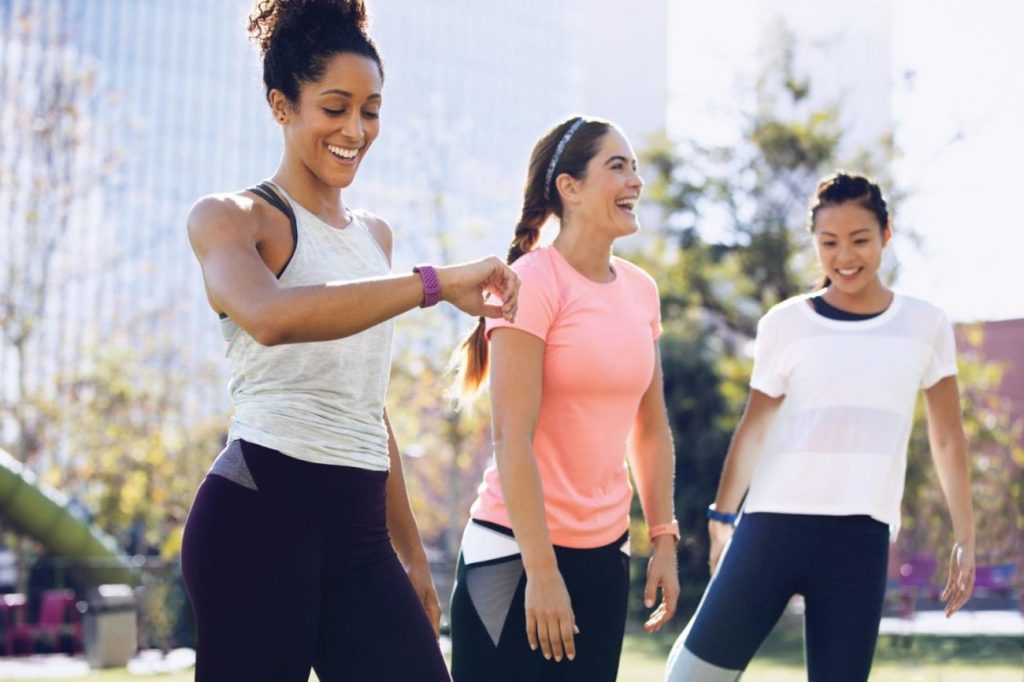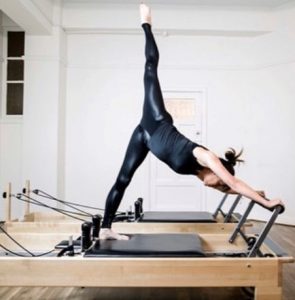Wearable technology continues to digitalise every aspect of our lives, but nowhere has its impact been more profound than on our health. Bridging the gap between high fashion and fitness, today’s wearable trackers help users achieve their health goals and stick tot he latest fitness trends, quantifying everything from physical activity and heart rate, to sleep patterns and calorie intake.
In a global industry worth a staggering $4.2 trillion, it’s easy to put Google’s recent blockbuster $2.1 billion takeover of Fitbit into perspective. Just as Apple’s tight integration between iPhone, Apple Watch and AirPods has made it the market leader in wearable fitness, Google hopes to haul itself back into the race, revamping its underused Wear OS to make Android tech compatible with the cutting-edge range of Fitbit products.
One of the world’s most popular smartwatch brands, Fitbit is motivating the fitness habits of kids and adults alike. The Charge 3 is widely regarded as one of the best trackers on the market, bringing a new larger screen, seven-day charge life, and fresh features such as 24/7 heart rate tracking, guided breathing for relaxation and a sleep tracker giving you a glimpse into how long you’ve enjoyed light, deep and REM sleep. It uses the GPS on your phone to keep track of your activities and a waterproof design means you can even take it swimming.
Fitbit’s latest accessory offering, the Aria smart scale is designed “for the technologically-advanced weight watcher”. Now in its second iteration, the device connects seamlessly with the Fitbit app, meaning at the touch of a button, you can sync your weight, BMI and body fat percentage with your smart watch data to produce colour-coded charts displaying the progress of your fitness regime.
The Ace 2 has opened up the world of activity tracking to a younger demographic, helping parents monitor and motivate their children’s activity. Colourful animations pop up on-screen to celebrate a fitness or sleep goal being reached, while aspects of the original version have been restricted, most significantly the calorie counting feature, encouraging wellness over fixation on weight.

Reason to Run
If you’re looking to dig out your running shoes in time for the New Year detox, why not explore a way to jog while giving something back to the local community?
GoodGym is a not-for-profit organisation founded in 2009 that encourages members to combine exercise with doing good. Now established in 57 areas across the UK, including Manchester, all you need to do is sign up to the website, before starting your first mission: running by yourself or with others to perform one-off or ongoing charitable ventures.
The idea is to give you a tangible purpose to brave the wintry weather, kicking up some leaves with like-minded fitness enthusiasts while experiencing that feel-good factor. Tasks range from hauling furniture at an older person’s house, visiting an isolated member of the community or contributing to a communal building, clearing or gardening project.
Membership is a voluntary £9.95 a month and communities are springing up all over the city, but if there isn’t much activity in your area, become a run leader and spread the word. So why burn energy in an overpriced gym when you could harness it sprucing up your local community? You might just pull off two New Year’s resolutions in one.
Plant Power
After Manchester declared a climate emergency last summer, the need to re-evaluate our lifestyles to avoid environmental catastrophe has never been closer to home. With the global population projected to reach 10 billion by 2050, it’s clear what we eat carries implications beyond our waistlines.
Transforming our diets is a vital step towards mitigating the effects of an intensive farming industry on topsoil pollution, global warming and deforestation. Meat consumption contributes to over 60% of agricultural greenhouse gas emissions – a single cow belching up to 500 litres of methane each day. With a worldwide cattle population of 1.5 billion, that’s a heck of a lot of gas.
While we don’t have to live free from the pleasures of a good salt beef bagel, by all means eat that steak, but don’t eat it every day. With new evidence coming to light that eating more than 90g of red or processed meat a day puts you at an increased risk of developing bowel cancer, many are adopting ‘flexitarian’ diets with meat-free days.
It’s not just our love of meat that’s wreaking havoc with the environment. Palm oil, found in processed foods from ice cream to bread is devastating Indonesian rainforests, while sugar cane fertilizers are ravaging the Great Barrier Reef. According to recent research published in the journal Proceedings of the National Academy of Sciences, this junk food obsession is bad for people and the planet, deeming fruit, vegetables, beans and wholegrains best for both avoiding disease and protecting the climate and water resources. But with the growing trend for veganism, it’s important to remember a varied diet with an adequate source of vitamin B12 is crucial to maintaining good health. Done right, a plant-heavy diet is the perfect compliment to fitness trends!
Sourcing locally is another positive step to reducing the culinary carbon footprint, while reaping little-known nutritional benefits. A study headed by the BBC in collaboration with the University of Chester shows freshly picked vegetables contain the greatest number of vitamins, which degrade immediately after harvesting. With key nutrients affected by the handling and storage processes intrinsic to chain supermarkets, supporting our Lancashire farmers is a win-win for everyone on the food chain.

Flexible Fitness
Now more of a lifestyle than a mode of exercise, yoga isn’t simply yoga anymore. Whether it’s sweating it out in a hot yoga session or pulling a mid-air toe touch in the name of aerial yoga, there appears no end to the dizzying array of forms. While yoga classes used to be an afterthought at the local gym, they’re now as ubiquitous as spinning. The fitness studio at David Lloyd Manchester North offers over 20 classes every week from the fast-paced intensity offered by Ashtanga yoga to the gentle, meditative form of Hatha.
Just as the variants are growing, so too is the industry itself. In the UK alone, the yoga sector is worth an estimated £800 million, with nearly half a million Brits subscribing to classes each week. Perhaps it’s how it fits so well into our hectic lives, affording us the opportunity to carve out an hour of peace amid screen overload – not to mention countering the eight hours spent hunched over a desk.
A stark contrast to the ‘no pain, no gain’ intensity of a weights or cardio class, the practice is shifting our concept of exercise towards the realms of relaxation and self-reflection. If you find intense fitness trends hard to stick to, yoga’s emphasis on relaxation may be perfect for you! The mindfulness trend which has emerged from our yoga obsession appears to be spreading across the health sector as a whole – our preoccupation for wellness transcending into superfood supplements, athleisure clothing and ever-more innovative equipment.

Expert Opinion
Manchester-based instructor Stacey Lennard has been at the forefront of the industry, and believes reformer pilates, using long benches with weighted springs, is the one of its most valuable forms: “No piece of pilates equipment is more famous than the reformer. The secret of reformer pilates is its ability to train many parts and dynamics of the body in so many different ways with just one sleek piece of equipment. Over 500 different exercises are done on the reformer to promote length, core strength, flexibility and balance.
Stacey works across all age groups and adapts the training to individual needs, including injuries and spinal conditions: “The reformer offers all the benefits of pilates including building and maintaining overall strength, flexibility, coordination and balance. These things, in turn, lead to daily life improvements including better posture, efficient movement, and relief from pain associated with physical imbalances, such as back, neck, knee, shoulder and hip pain.”
To book a taster session with Stacey, call 07790 770 138

